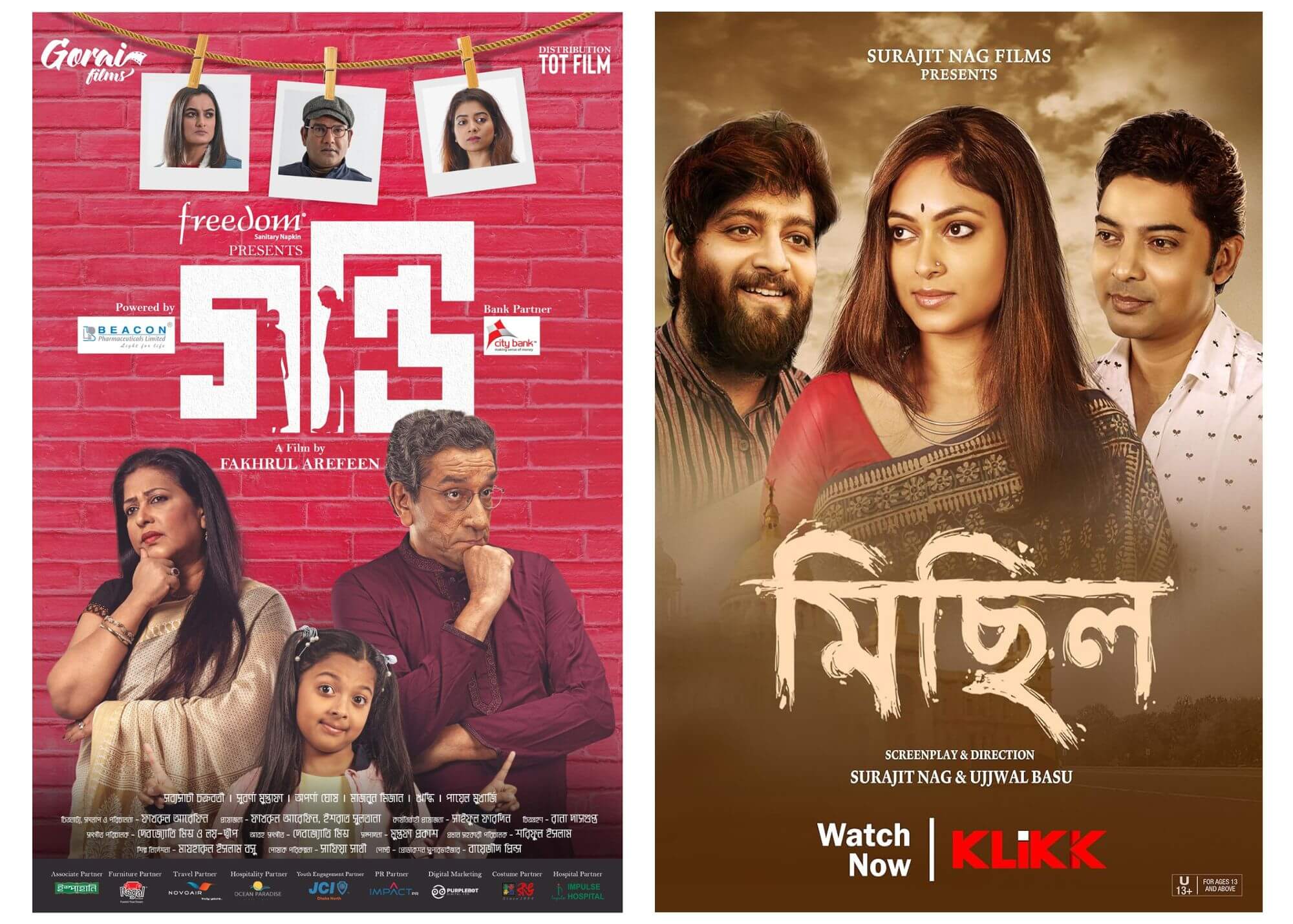Ruchira reviews Gondi and Michhil, two films that explore themes of aging, freedom, and societal expectations, providing insightful commentary on modern living exclusively for Different Truths.

There are all kinds of movies, such as the run-of-the-mill, potboilers (aka formula movies). There are rib-tickling, side-splitting hilarious ones. We also have another category which, though entertaining in content, drives home powerful messages concerning the day-to-day lives of the viewers. Lately, I have caught up with two films that fall in the last category.
In the Bangladeshi film, Gondi (boundary, limit), the protagonist is Azgar Ali (Sabyasachi Chakraborty). A widower who has been superannuated lately lives alone with his driver and domestic help in an upscale neighbourhood of Dhaka (the capital of Bangladesh). His only son, Ali Mizan, lives in London with his family. Azgar Ali has been diagnosed with dementia and memory loss. He, therefore, confines himself to looking after his lush private garden on the roof, watching stars at night using a personal telescope, and stroll in a nearby park every morning. He also enjoys connecting with his granddaughter in London via Skype.
On one occasion, due to an oversight, Ali transferred Rs 5 lacs to the account of a lady named Shamima (Subarna Mustapha). The latter, aged around 50, is a dentist by profession. She too lives alone since her only daughter is settled in London. After the gaffe, the duo meet, get friendly and even turn out to be neighbours!!
Ali’s doctor advises the duo to go to the popular seaside resort of Cox’s Bazaar as a change of scene would be rejuvenating for both.
By a stroke of ill luck, the two elderly friends get captured in a selfie clicked by a young lady tourist and later went viral. Coincidentally, it reaches Azghar’s daughter-in-law (a pal of the tourist). She is scandalized to see her papa-in-law’s degradation and ‘lack of decency’. Likewise, Shamima’s daughter too is shocked to witness her mother’s ‘obnoxious’ behaviour.
The crafty youngsters —the son and the daughter with their families in tow— air dash to their native city determined to settle score with their respective parents. There ensues noisy, unruly scenes arguments, and tongue-lashing in both households. But the controversial couple refuses to budge. They firmly tell their children that they too have the right and freedom to live life on their terms. Ultimately, the children give in and go back to their homes…
The second film, Michhil (procession), powerfully depicts how a minor issue can snowball into a life-changing one.
The story revolves around the life of the pretty, youthful Shreemoyee, the well-educated only daughter of a middle-class family. She is engaged to a guy named Tapodhir and naturally harbours rosy dreams about their future together.
A quirk of fate, one evening, while crossing the road, Shreemoyee gets entangled in a political rally, while on her way home. When news about the rally is shown on television later that evening, her prospective laws spot her in the video clip telecast alongside. They are shell-shocked and begin to doubt her character and integrity. Worse, even her beau changes his mind regarding their mutual relationship. He rolls out conditions in case marriage does take place.
Shocked and disillusioned beyond measure, she boldly confronts the boy’s family and calls off the wedding. Her premise: a relationship devoid of trust or faith can never be fruitful.
Well, I do hope these flicks prove to be eye-openers for the die-hard nosey pokers among the viewers.
Picture from IMDb






 By
By
 By
By
 By
By